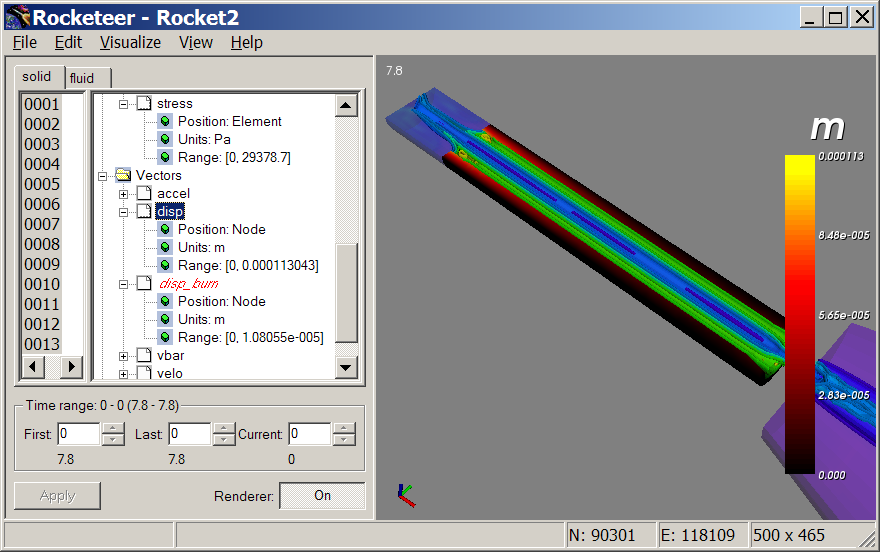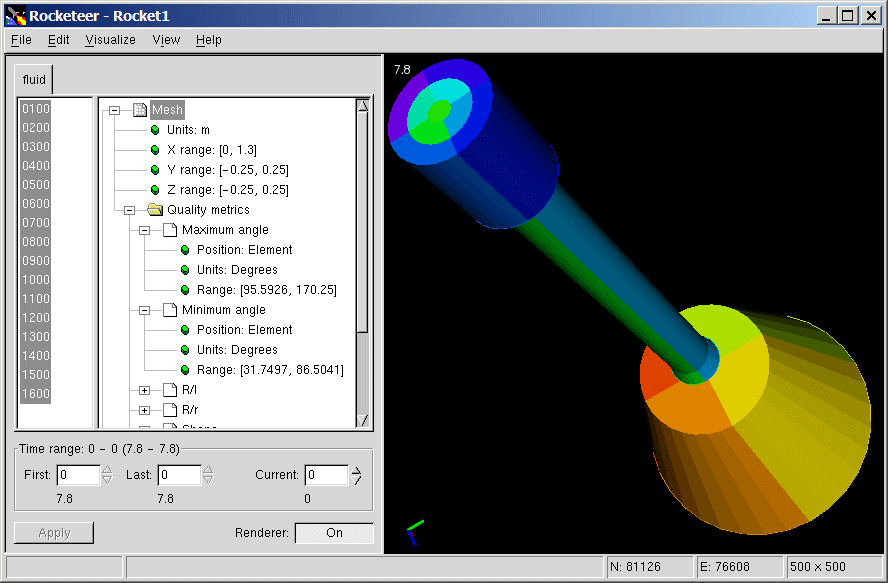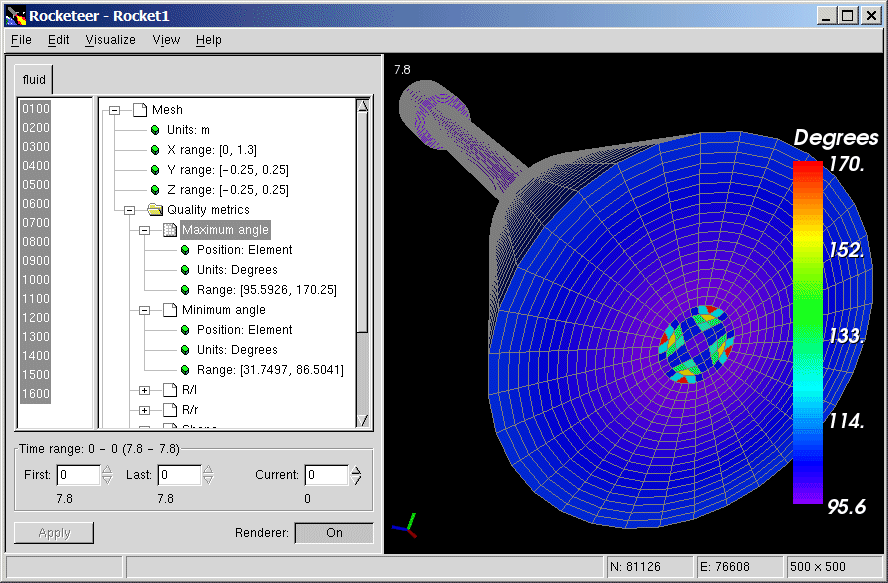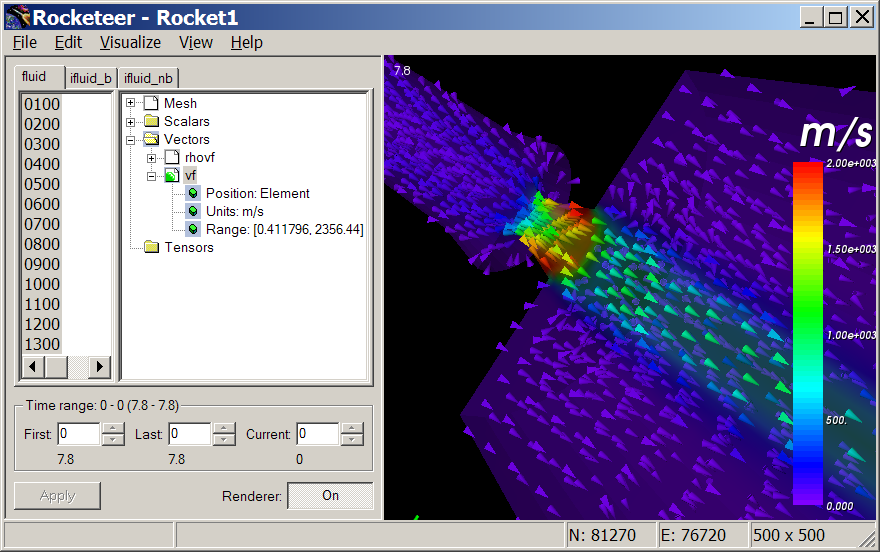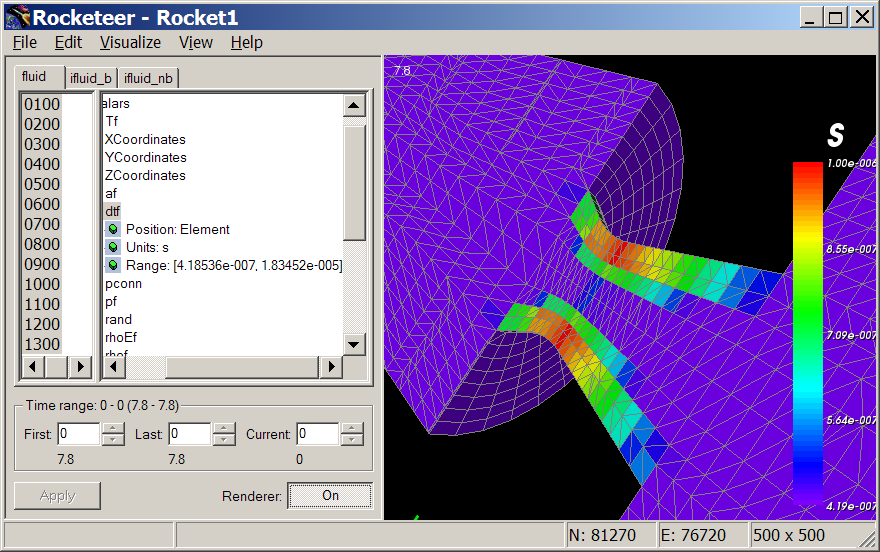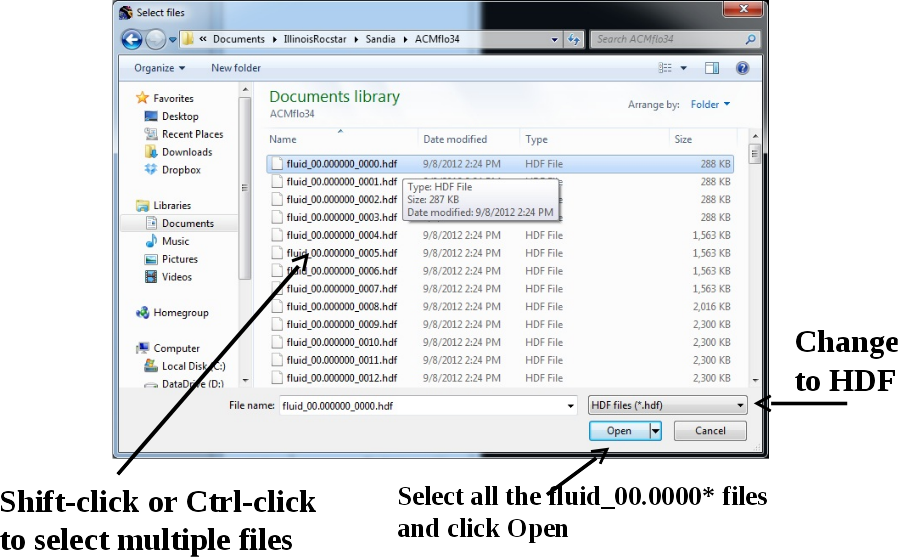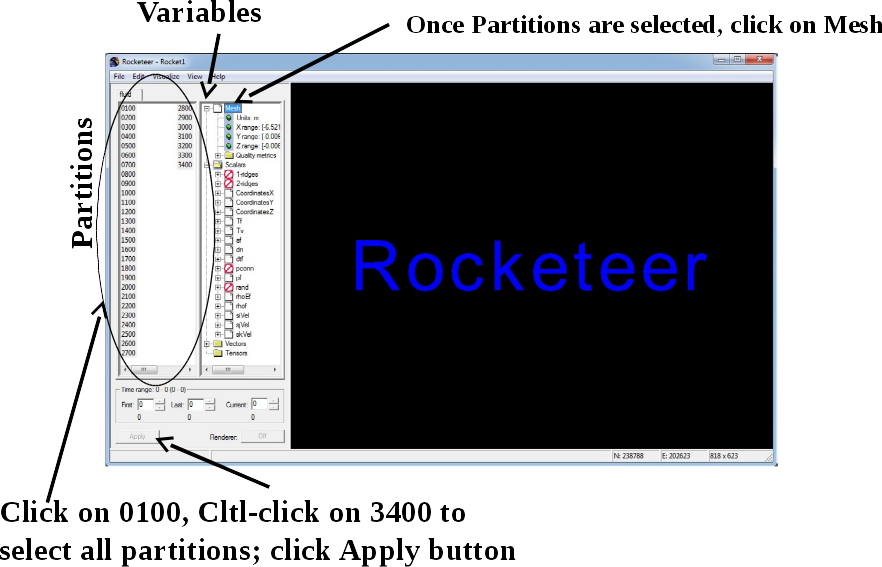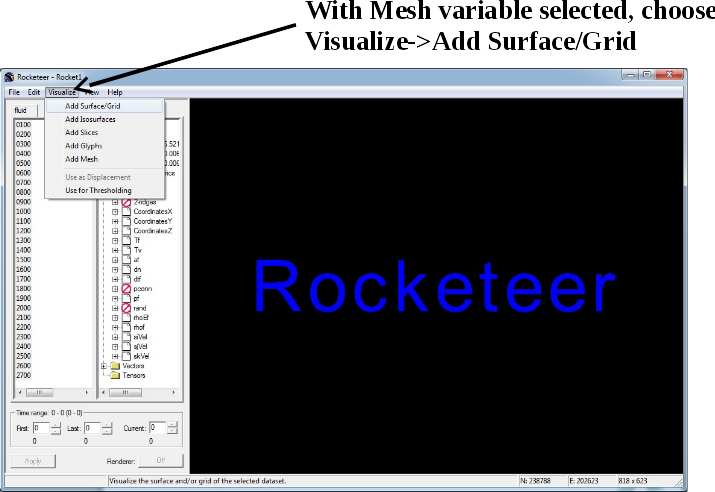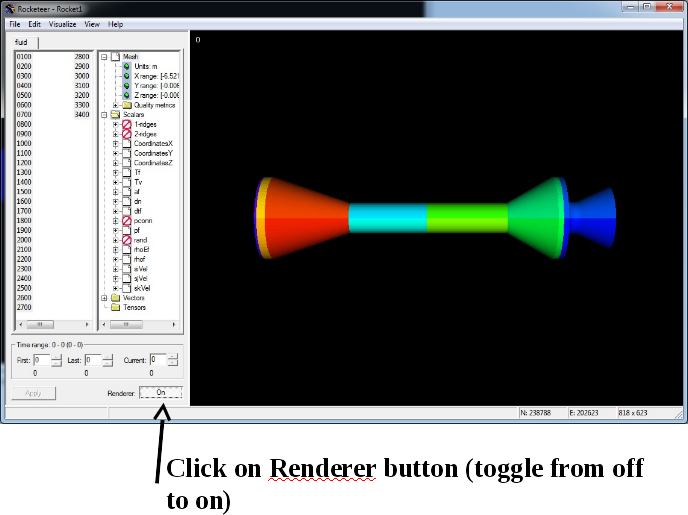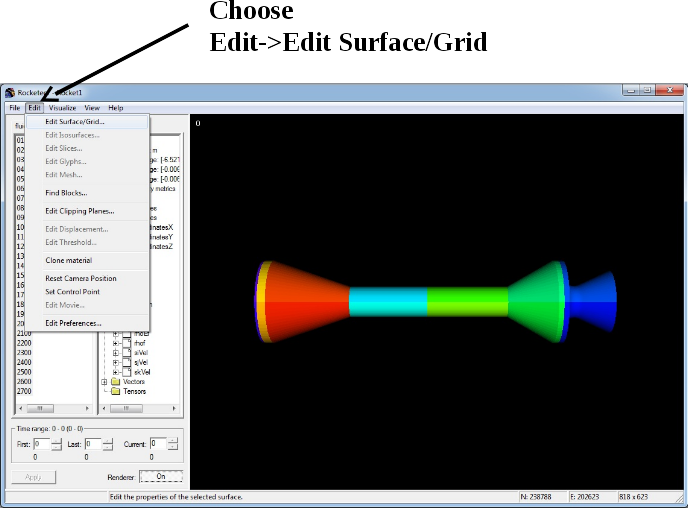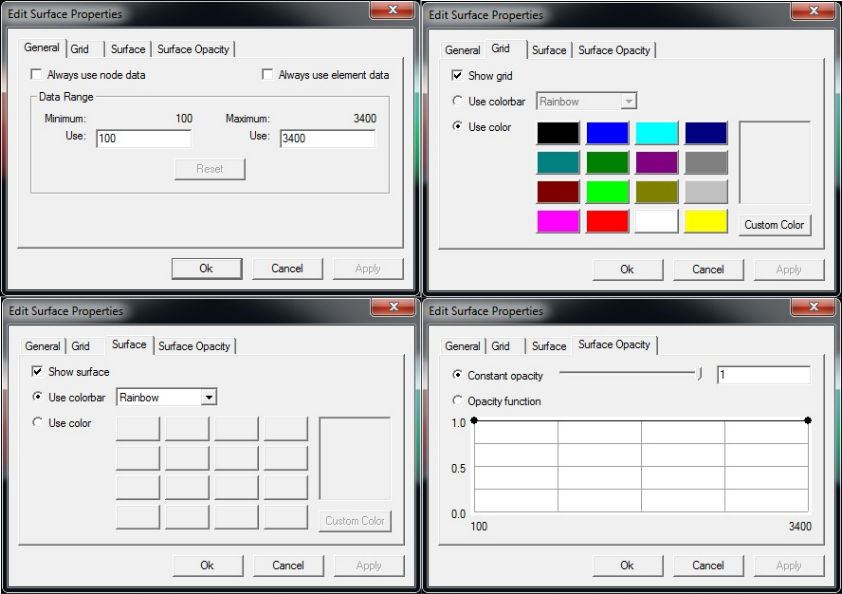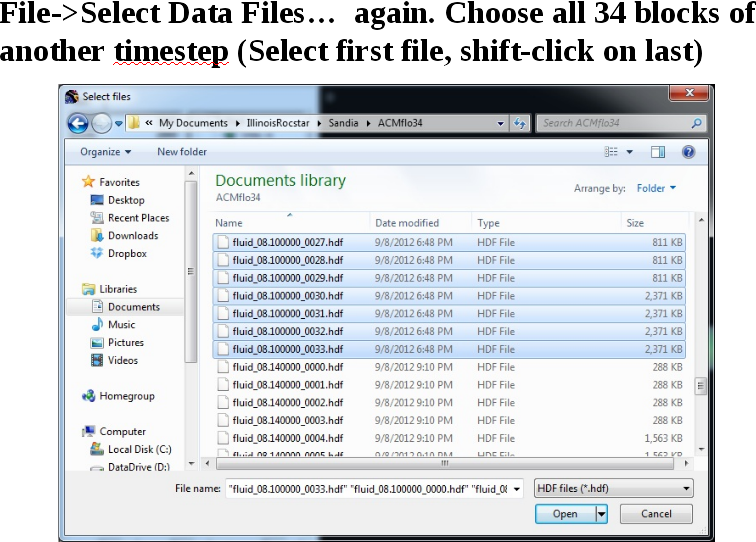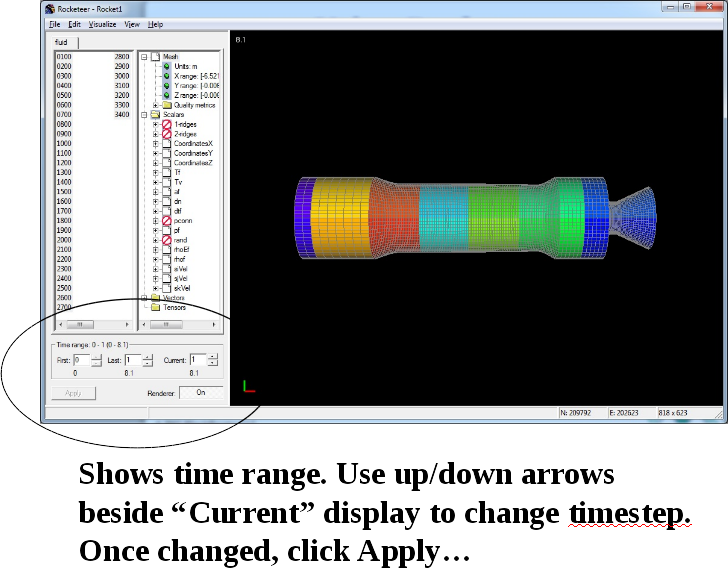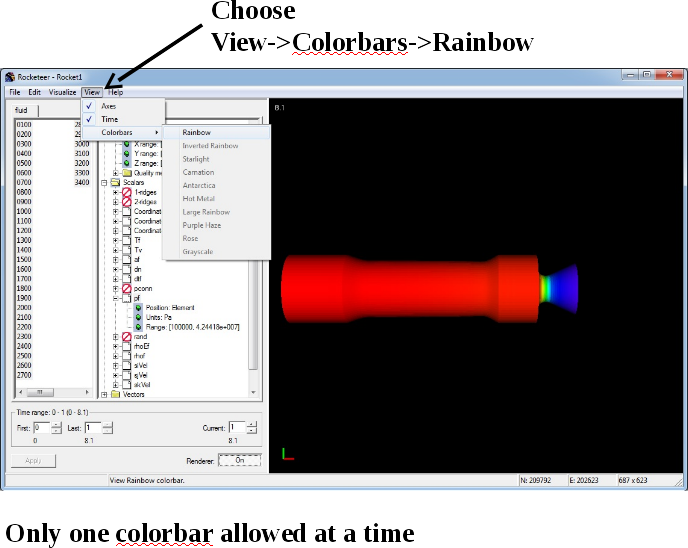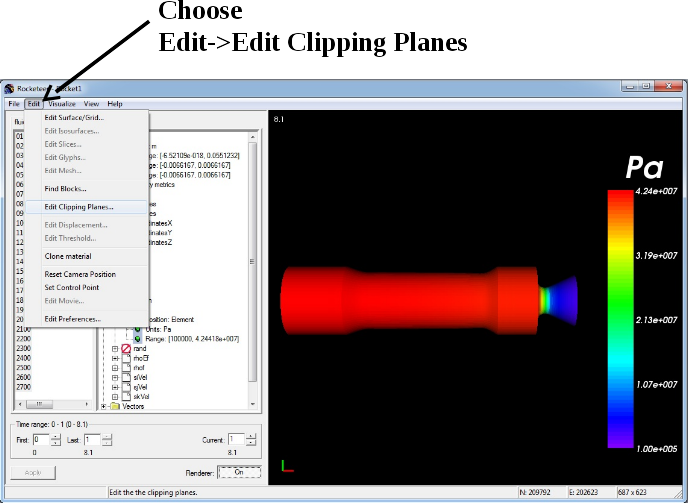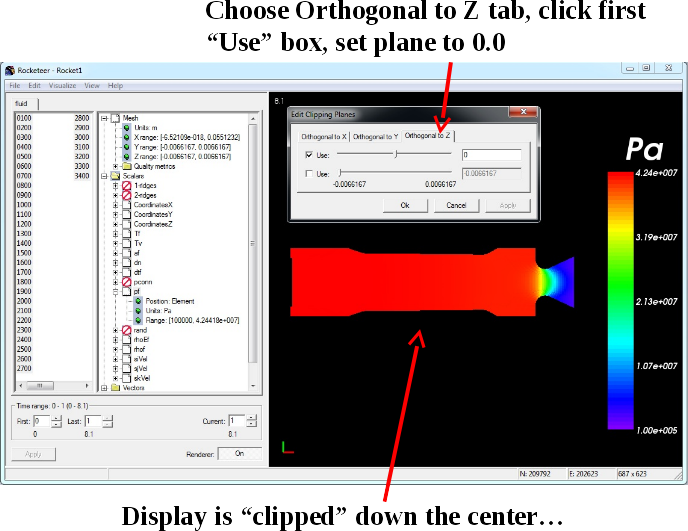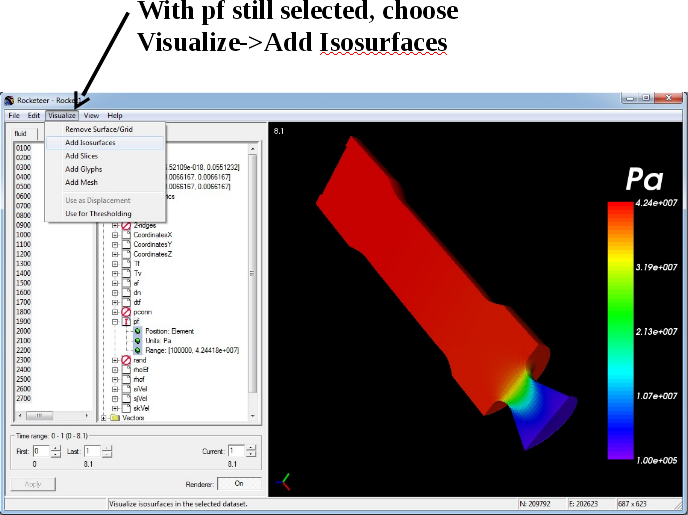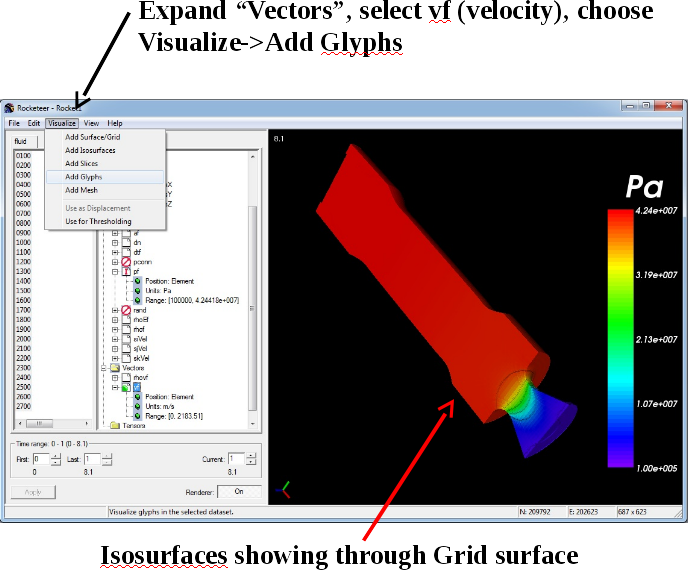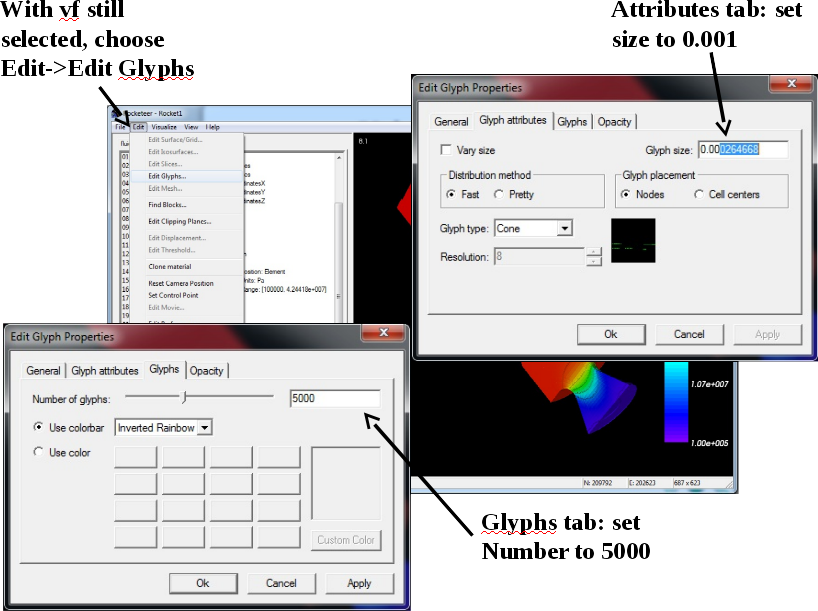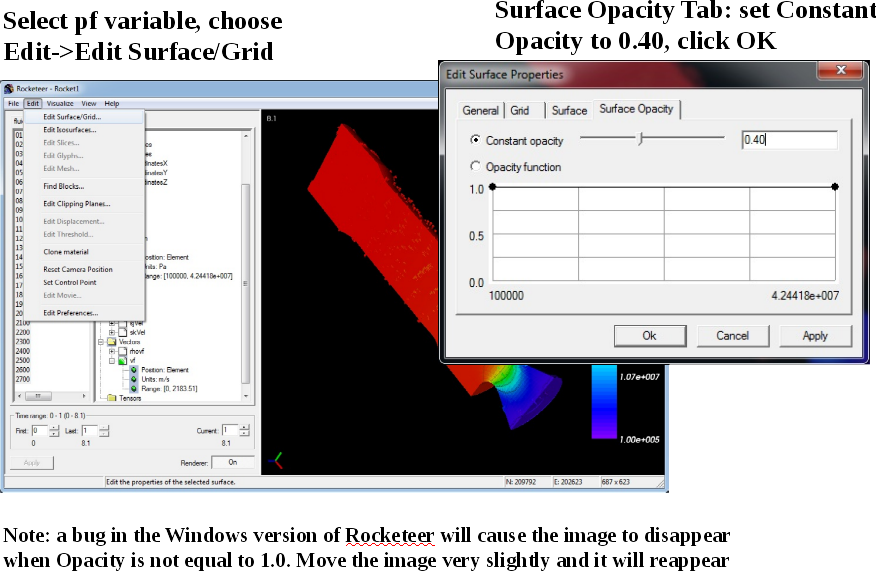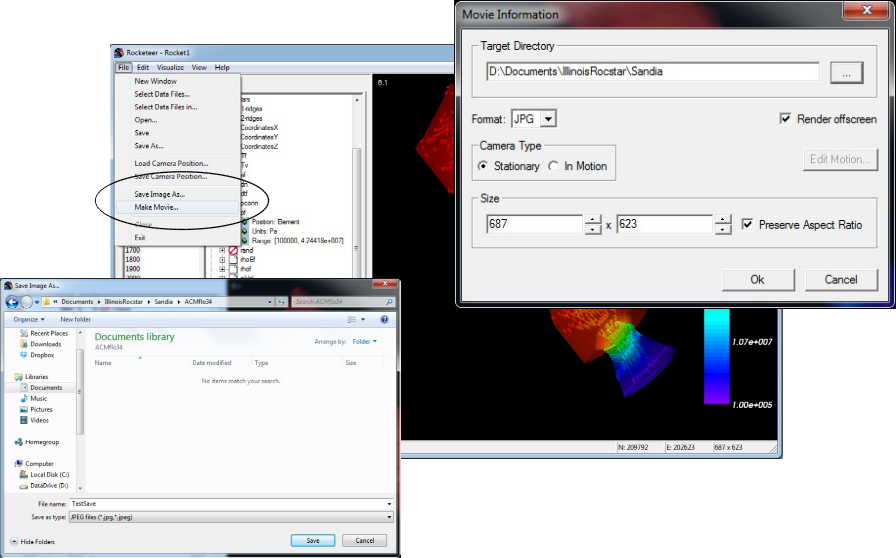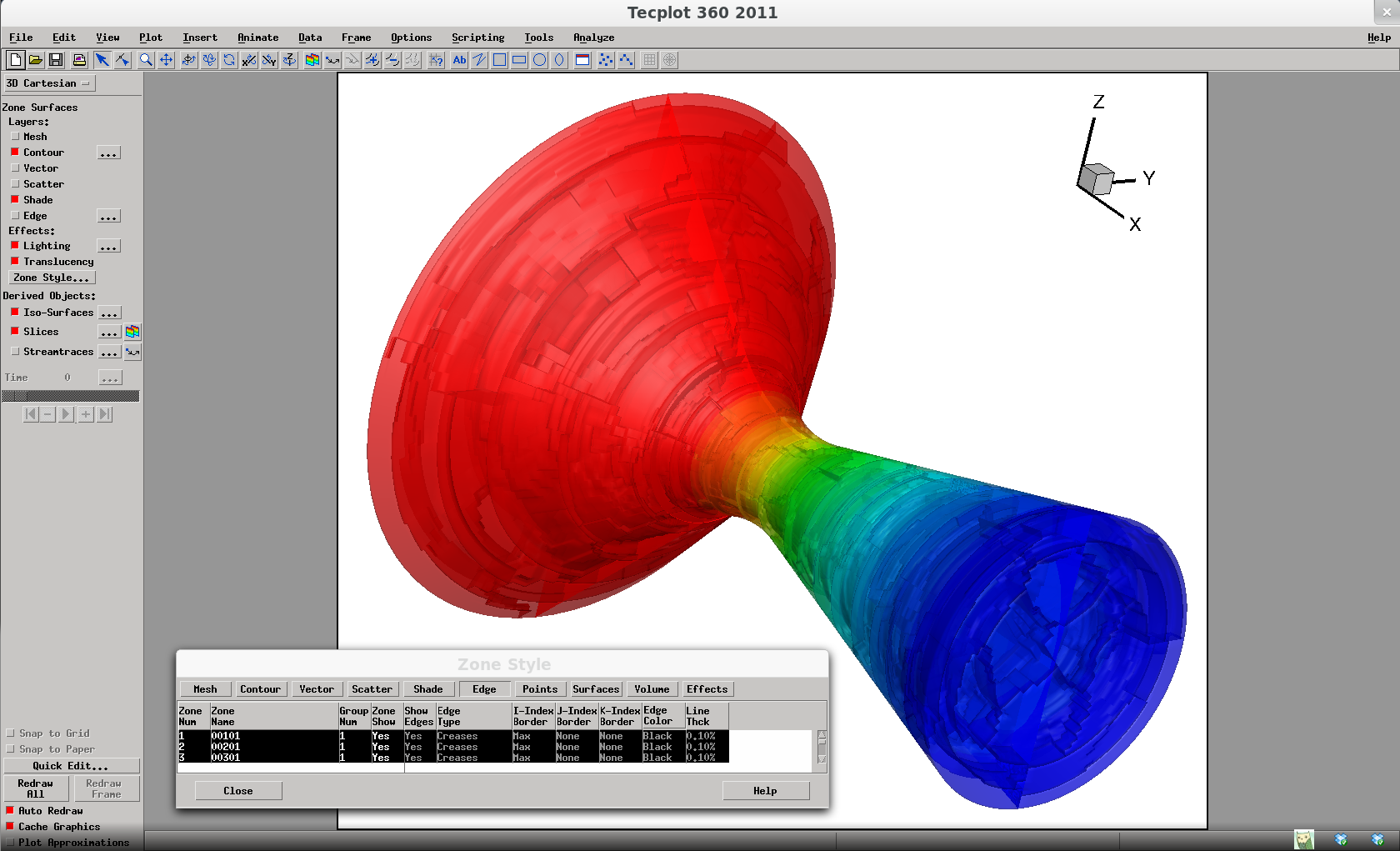Visualizations with Rocketeer
Prerequsites on Linux
Rocketeer needs:
- libstdc++.so.5 (compat rpm’s)
- libGLU.so.1 (rpm)
Description of Rocketeer
All data sets
- Times, Blocks
- Coordinates/Ranges
- Nodes/elements
- Variables/Ranges
- Scalars, Vectors, Tensors
Mesh
Quality Metrics
- Min/Max angle
- Size, Skewness, etc.
Also contains the surface plots
Glyphs
Isosurfaces 3-D mesh plots Opacity controls
Thresholds Animation
- Output series
- Moving camera
Stand-alone, client/server, and batch versions
Using Rocketeer
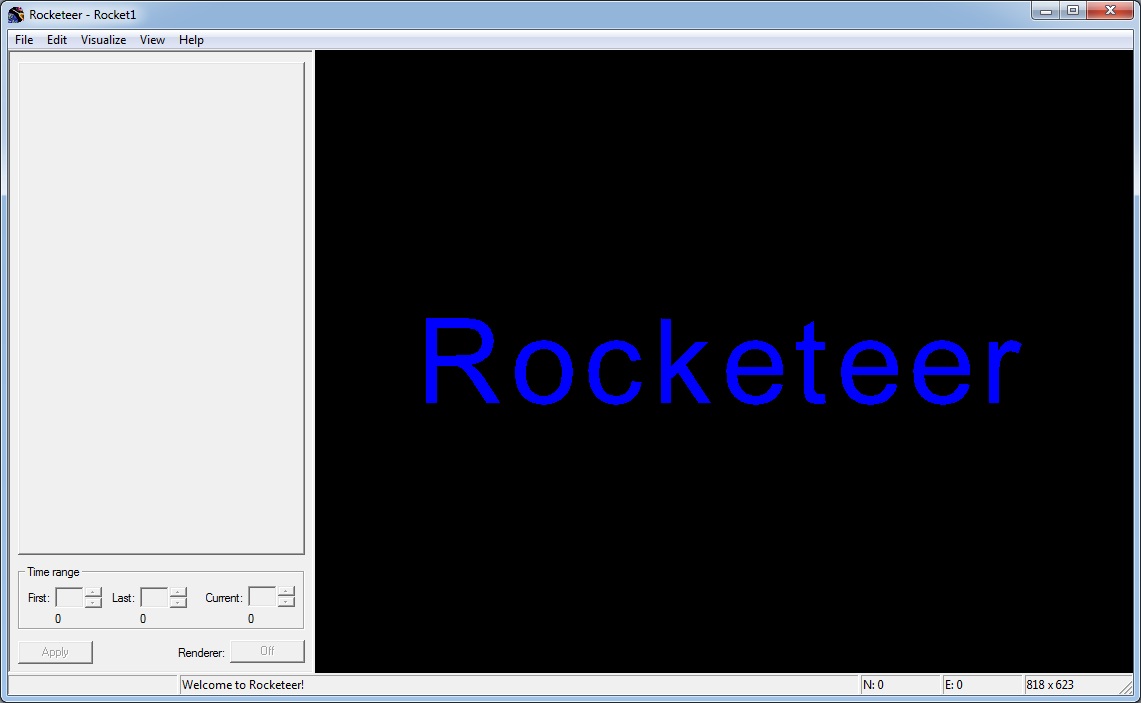
Open Rocketeer on Windows by double-clicking icon
Select Data to Display
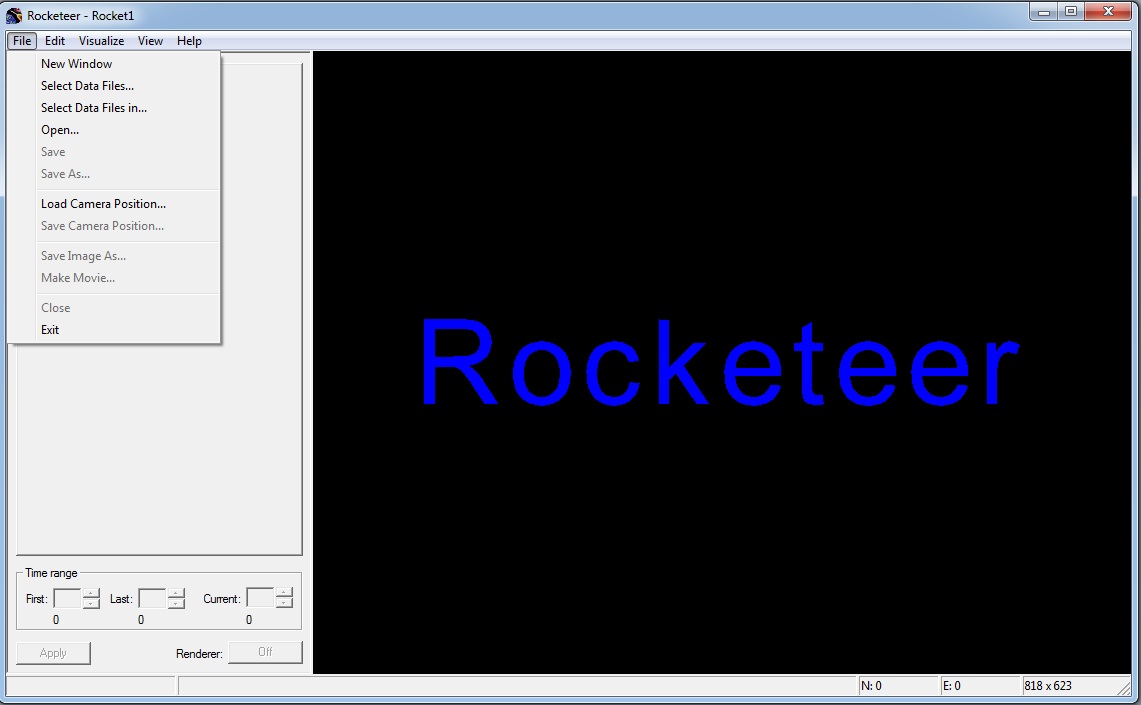
Choose File->Select Data Files…
Data Selection Dialog
Data Display
Selecting Variables to Visualize
Activating Display
Moving the Image With the Mouse
- Left button – free rotate
- Ctrl-Left Button – Rotate in plane of screen
- Right button hold/move up: larger image
- Right button hold/move down: smaller image
- Center button: translate in plane of screen
- Note: There is no “return to default” command
Change How Mesh Displays
Edit Surface/Grid Dialog
Add a New Timestep
Displaying Different Times
Displaying Different Variables
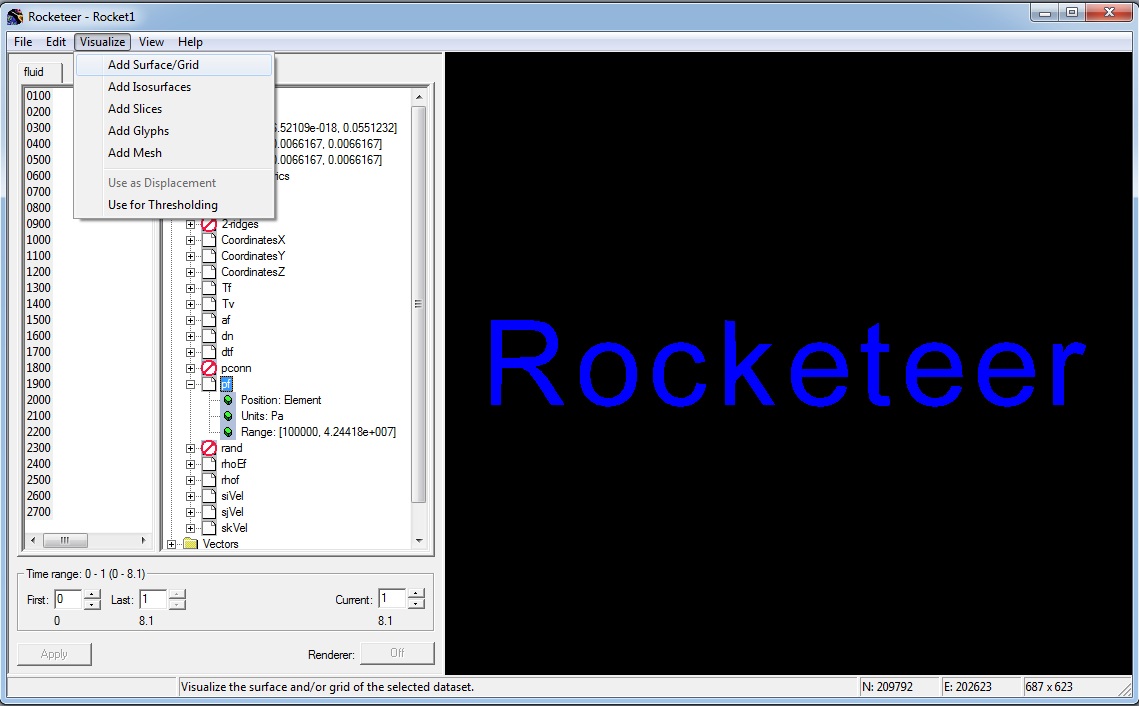
Click on Mesh icon in Variable area. & Choose Visualize->Remove Surface/Grid & Click on pf variable (pressure) & Choose Visualize->Add Surface/Grid & Then click Renderer: On button
Add Colorbar
Clipping Planes
Set Clipping Plane
Add Display Elements
Add a Second Variable
Edit Glyphs
Opacity
Final Display
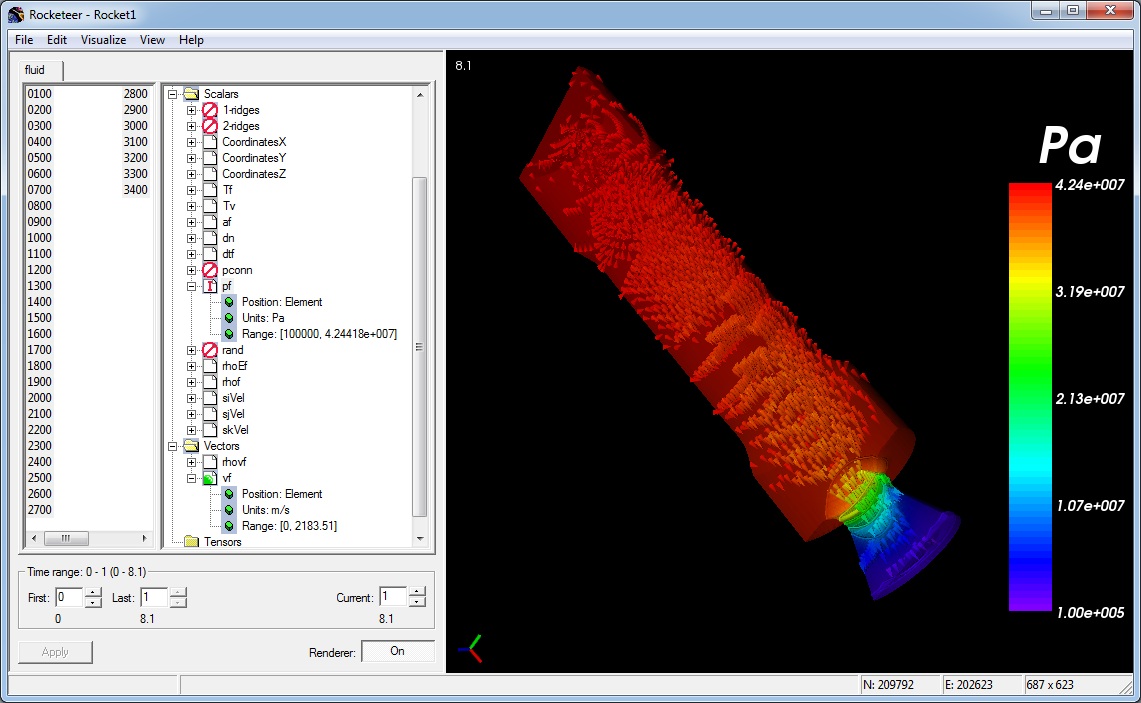
Displaying translucent pressure, isosurfaces, and velocity glyphs.
Save Images and Movies
Further Capabilities of Rocketeer
- Ability to use multiple materials (fluid and solid, surface)
- Enable block Selection and movie Fly-throughs
- Visualize slices and bounding boxes
Loading Rocstar Files into Tecplot
HDF4 to Tecplot Conversion Utility
HDF4 to Tecplot conversion utility: <build>/bin/hdf2plt
Usage: hdf2plt –regex “hdf files to convert ” –o <filename>.dat
Available command line flags for hdf2plt:
- - -regex "{somestring}*.hdf": specifies a set of hdf files
- -g: enables ghost node inclusion in the output file
- -o {outputfile} : Specifies output file. Output is printed to STDOUT by default
Rocstar Partitions to Tecplot
Information on grid partitioning
- Rocstar partitions grids with M original blocks into N sub-blocks for running on N processors (N >= M)
- Rocstar solution files are written by partitioned block, with each block represented by a separate .hdf file
- An N-processor run will produce N .hdf files
- Each hdf file will be translated to separate zone of the single Tecplot file produced by hdf2plt
- Note: The University of Illinois version of hdf2plt will produce discontinuous zone boundaries when visualized in Tecplot
- New version under production
Preplot and Load Solution Files
Preplot (Tecplot utility)
- hdf2plt writes an ascii Tecplot file that can be quite large (many Gb)
- Converting this file into Tecplot’s binary format (appended with .plt) saves time transferring and loading solution files
- Preplot is a Tecplot utility for performing this conversion. It is included in a standard Tecplot installation and can be distributed freely
- Usage: $ preplot <filename>.dat
- Generates: <filename>.plt
Loading fluid solution file into Tecplot
- After conversion, the .dat or .plt solution file can be loaded by the standard Tecplot data loader:
- File->Load Data Files -> Tecplot Data Loader
Probe files
- The probe text files are not covered by an existing utility
- They can be loaded into Tecplot, Excel, etc. using the General Text Loader
Rocstar Data Visualization in Tecplot
All of Tecplot’s visualization and analysis tools can now be applied to the Rocstar simulation
Allows deriving new variables, etc. that Rocketeer does not do
These sections are adapted from the Rocketeer and Visualization powerpoints respectively.
